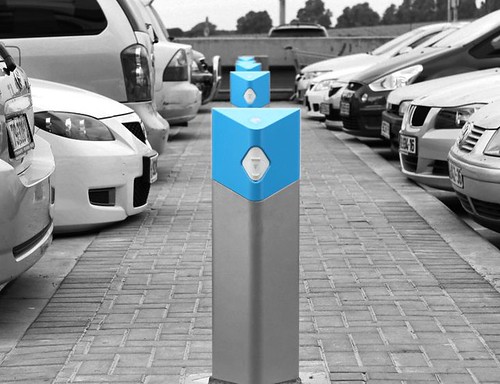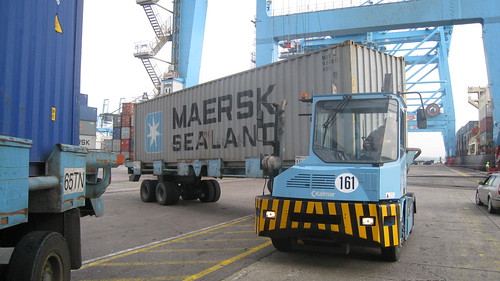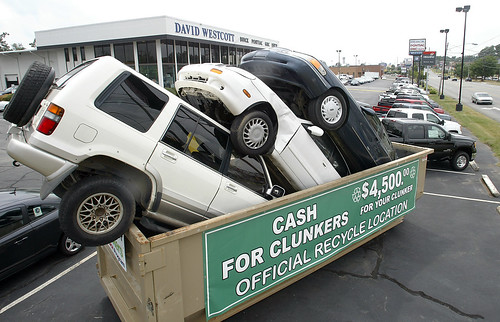IDEA thinks Charge Spot is a golden idea! Shai Agassi’s Better Place Wins Gold Medal in 2009’s International Design Excellence Awards for Electric Vehicle Charging Station Design
(Source: Business Week)
NewDealDesign and Better Place teamed up to create a car recharging tower called the Charge Spot, and won themselves an IDEA gold award
One day, recharging stations for electric cars might be much more common than gas stations. If NewDealDesign has its way, they won’t look at all the same, however. The San Francisco design shop has teamed up with e-car venture Better Place to create the Charge Spot, an electricity outlet that received the gold medal in 2009’s International Design Excellence Awards (IDEA a.k.a. Industrial Designers Society of America). The slender and sleek column looks a bit like a sidewalk traffic barrier with a blue plastic top. Amit calls it a “mini-tower of electric power.”
NewDealDesign, founded and financed by Gadi Amit, its president, borrowed from its experience with consumer-electronics clients such as Dell , Fujitsu, Nokia, and Palm to create the Charge Spot.

 Better Place’s goal is to have these electricity outlets built wherever people might park their cars for long stretches—parking lots, garages, and streets. Motorists would plug one end of a heavy-duty extension cord into the top of the Charge Spot and the other into a port on their vehicles. Within six hours, their cars would be fully juiced and good to go. Shown below is an awesome cool video, courtesy of YouTube, demonstrating how the technology works)
Better Place’s goal is to have these electricity outlets built wherever people might park their cars for long stretches—parking lots, garages, and streets. Motorists would plug one end of a heavy-duty extension cord into the top of the Charge Spot and the other into a port on their vehicles. Within six hours, their cars would be fully juiced and good to go. Shown below is an awesome cool video, courtesy of YouTube, demonstrating how the technology works)
The tower also houses digital electronics for recording charges and billing motorists’ accounts. The Charge Spot team, drawn from NewDealDesign’s staff of 12 designers, removed hinges and doors from the first prototypes, simplified the display screen, and changed some internal components, reducing cost to about one-tenth of earlier designs, says Paluska. Each spot can also charge two cars at once.
Better Place, established by Shai Agassi in Palo Alto, Calif., in 2007, is trying to create the infrastructure for battery-powered cars. It is also working with Renault-Nissan to design a new electric vehicle. First-generation recharging fixtures were patterned after gasoline pumps, with a power cord instead of a hose. NewDealDesign chose a different model: chargers for portable devices such as laptops, cell phones, and iPods.
“We want to make the electric vehicle a normal, widespread car, not just for the ‘crazy’ green guy,” says Amit, 46, who started NewDealDesign in 2000. Better Place launched the Charge Spot last December in Israel, where 900 of a planned 100,000 have been deployed in preparation for the upcoming launch of its electric vehicle. Plans are afoot for massive, worldwide deployment of these charging stations in many car-huggng cultures, including the US, Canada, Denmark, Japan, Austrlia.
Click here to read the entire article.










 Registration Information
Registration Information
